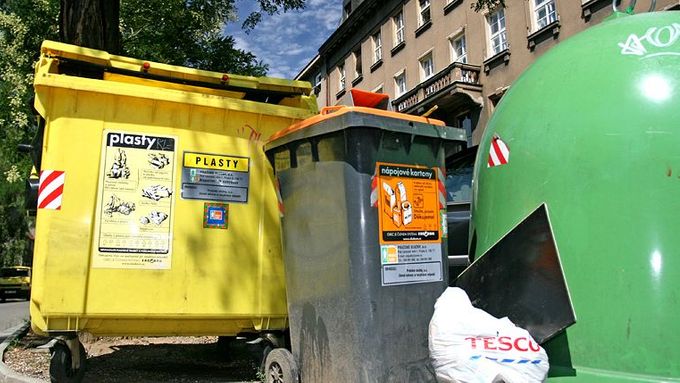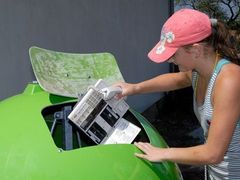Prague - In 2006, the Czech Republic recycled 44 percent of all PET bottles and other plastic packaging, 3 percent more than Europe's traditional recycling champion, Germany, according to the latest report from Eurostat, the EU's statistical office.
The figures have now been picked up by the Czech Union of Towns and Municipalities as proof that the existing recycling programme is successful. The union is opposing Environment Minister Martin Bursík's plan to make all PET bottles and beverage cans refundable. This would deprive municipal coffers of a major part of their income from the sales of waste to recycling facilities.
"The Eurostat figures show that the long-term waste management programme adopted by Czech municipalities is good and successful. The Czech Republic belongs to the most thrifty EU countries," the union wrote in its statement.
Plastic recycling exceeds 50 percent
According to more recent data from EKO-KOM, a company that coordinates collection and recycling of package waste in the Czech Republic, the share of recycled plastic last year exceeded 50 percent.
The country is thus doing much better than the EU requires. In 2007, Czechs were obliged to recycle no less than 25 percent of PET bottles and other plastic packaging.
"Today, 98 percent of the population have a chance to recycle, and 70 percent actually participate," said Šárka Nováková, EKO-KOM spokeswoman. She added that on average, each Czech person recycled almost 50 kilograms of plastic, glass and paper last year.
Recycling of kitchen waste and electronics lags
Despite these encouraging figures, the Czech recycling scheme still lags behind in many other aspects. Packaging, including plastic, glass, paper and metals, represent only a smaller part of household waste.
Potato peels and other waste from the kitchen or garden make up the largest group of household waste, but most of them are dumped in the general rubbish bin and end up in landfills. The same goes for old computers, mobile phones and other appliances.
"Many campaigns focus on the collection of plastic, paper and metals. But these make up only a third of household waste, while biological waste makes up one half," observed Ivo Kropáček from the environmental group Hnutí Duha for Aktuálně.cz.
The organisation is convinced that even the existing collection of sorted plastic or glass could be improved. "While general rubbish bins sit outside every building, recycling bins are usually a few blocks' walk away," says Kropáček.
Brussels wants more
The EU plans to significantly toughen its recycling regulations. It is proposing that by 2020 every member state should recycle one half of all municipal waste and 70 percent of construction and demolition waste.
In addition to that, the EU would like to impose a cap in 2012, under which member states will not be allowed to generate more waste than they did in 2008.
If the new directive passes the European Parliament and gets approval from all EU leaders, the Czech Republic will have to significantly step up its recycling efforts. In total, Czechs recycle only one fifth of their household waste, while neighbouring Austria and Germany recycle 60 percent, enough to meet the planned EU regulation.









